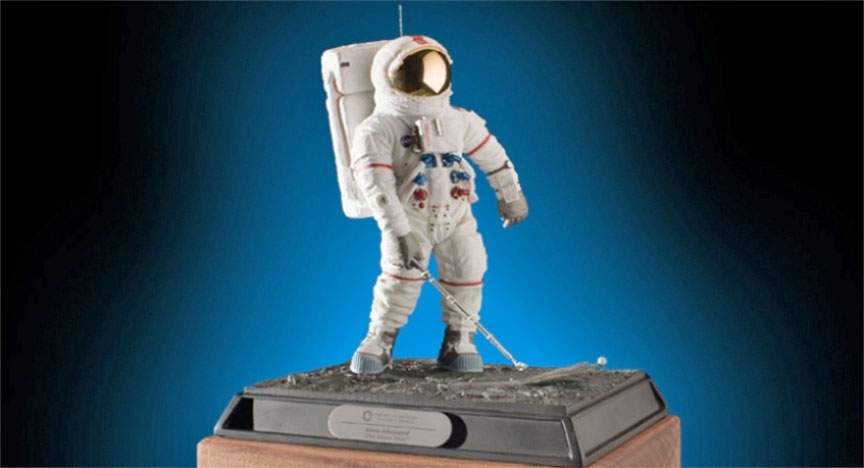[Satnews] The opening ceremony of the Space Foundation’s 32nd Space Symposium will begin with the presentation of its highest education award—Margaret Rhule Baguio, Senior Education Outreach Coordinator for NASA Texas Space Grant Consortium, has been selected by the Astronauts Memorial Foundation (AMF), the National Aeronautics and Space Administration (NASA) and the Space Foundation as recipient of the 2016 Alan Shepard Technology in Education Award.

The Alan Shepard Award.
This award is given annually in recognition of creative and innovative use of technology by K-12 educators, or district-level education personnel. The award, named for Mercury and Apollo astronaut Alan Shepard, will be presented during the Space Symposium’s opening ceremony on April 11 at The Broadmoor in Colorado Springs, Colo., USA. The ceremony is co-sponsored by Northrop Grumman, and the award presentation will be followed with a by-invitation reception co-hosted by the Astronauts Memorial Foundation.
Margaret Rhule Baguio has worked for more than 30 years in youth development and education in public schools for the Texas Cooperative Extension Service 4-H & Youth Development Program, she managed a USDA Science and Literacy project for underserved youth and she has promoted space education to students, teachers and the general public through the Texas Space Grant Consortium.
Highlights of her accomplishments include:
Developing the LiftOff Summer Institute, held at NASA Johnson Space Center, a nationally competitive, week-long professional development program for educators. Evaluation results show that annually, this one week-long workshop reaches 50 educators, who train an additional 1,250 teachers, who then use the materials with 130,000 students.
Implementing the Summer of Innovation program along the Mexican border of south Texas, with a 97 percent minority population and where the students qualify for free or reduced lunch. She trained 600 teachers, who then conducted week-long NASA-themed camps to more than 10,000 students in a four-year period. In addition, she initiated the first Space Camp at the Texas School for the Blind and Visually Impaired, where students had the opportunity to engage in hands-on NASA STEM activities. She was instrumental in receiving funding to engage Hispanic girls in NASA's Minority Student Forum and Girls in Science.
Through partnerships and collaboration, she has provided opportunities for teachers to fly on NASA's reduced gravity aircraft with experiments. She also arranged for students’ protein crystal flight experiments to be launched on the Space Shuttle for use by astronauts aboard the International Space Station. The students conducted authentic research, working with and being mentored by NASA scientists analyzing Earth-observing satellite data.
During the past year she conducted STEM professional development training to 3,260 teachers and engaged 17,036 youth in STEM activities.


